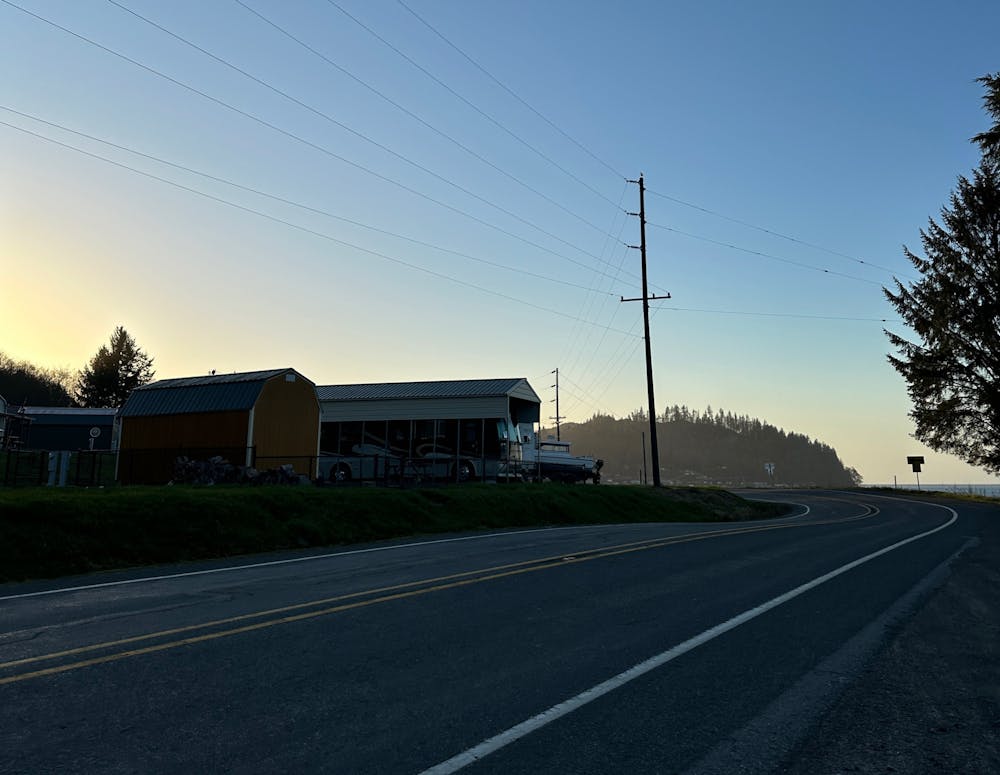
I remember sitting in my English teacher’s room during the last week of senior year, on the verge of tears. I was having an absolutely horrible day; I was exhausted, my limbs hurt a little more than normal and I could feel a stress headache from the subtly creeping impending doom.
It was my last few days at high school, and 18 felt like the age at which you should’ve experienced the world. I was (and still am) the biggest complainer, and I treated my English teacher’s room as if it was a therapy office or, more, a vacuum in which any and all discussion was free reign. The first half of senior year was spent whining about the inconvenience of college applications, and the second half was spent screaming about all the things I felt like I had missed out on during the peak of my teenage years.
As a nearly 22-year-old and almost college graduate, it seems laughable, yet I can’t help but relate to the person I was five years ago.
A quote I lived by in high school was by Elizabeth Bishop: “The art of losing isn’t hard to master.” Ironically, this is not the case at all. Losing is inevitable; we are all bound to experience it. When we lose, we always want to mold it into a life lesson, something that will teach us how to grow, but in reality, loss really sucks. Back then, as a senior, I felt like I had just experienced a four-year lesson on losing.
There weren’t even tangible experiences I missed out on during high school — I absolutely adored my friends, got the whole cliche teenage love and heartbreak, studied for my classes and played sports, pulled the all-nighters and spent afternoons at coffee shops and random stores. I handled college rejections like a champ, was ecstatic to come to Hopkins, and spent the last few weeks of senior year frolicking around my hometown with my friends and savoring the last of what we thought would be our youth. Sure, I wasn’t really the party type, and COVID-19 did rob me of a junior and partially senior year experience, but I didn’t feel an overwhelming urge to look for those things to add to my life. I truly felt content.
But sitting in front of my English teacher and hearing him ask me what was wrong was paralyzing. I didn’t have an answer. Fast-forward to 2024, and I still don’t know.
To this day, there are moments when Bishop’s words appear as a banner, interrupting my continuous flow of thoughts. While I would say my time at Hopkins has been anything but perfect, I can’t recall feeling like I truly missed out on anything, just as I hadn’t back in high school. Yet, somehow, the sense of loss lingers — not in the events themselves, but in the way I carry them. It’s as if each moment, disappointment and missed opportunity has layered itself into a quiet, unresolved weight.
At Hopkins, I've grown tremendously. I absolutely love Baltimore and am so happy to have gotten the chance to live in such a beautiful city (this is not a hot take). I have met the most inspiring and wonderful professors and mentors, all of whom I hope to work with one day. I’ve built lasting relationships and explored the world of knowledge, community and love in ways I couldn’t have imagined.
But there’s something about the expectations we place on ourselves — this internal narrative that tells us we should be experiencing more, that we should be more — and it makes me feel like I’m constantly falling short. And perhaps that’s the part I’ve struggled with most: the feeling that who I am and what I’ve accomplished will never be quite enough.
18-year-old me crying in my teacher’s room was not wallowing about missing homecoming. She was experiencing fear of time slipping away, of not having lived fully enough, of the world moving on without her. It’s funny how four years later, as I stand on the cusp of finishing undergrad, those same feelings resurface. The art of losing, in some ways, isn’t about the losses themselves but about the quiet spaces they leave behind — spaces that remind us that life, for all its fullness, still leaves us wanting for something more, something undefinable.
Perhaps that’s the real lesson: The art of losing isn’t about mastering loss but about learning to live with the spaces it creates — learning to be okay with the fact that we won’t always have answers and that, sometimes, the question itself is enough.
I have one hope for graduation, and it’s that we all, not just me, learn to live. That we don’t just survive beyond our years in Baltimore but truly learn to live. Life is not surviving. Life is an adventure, a mystery, hope and passion. Life is precious because it’s fragile, ephemeral and impermanent. Life is an illuminating conversation and a moment of absolute transcendence.
As I enter senior year, I realize that the next chapter won’t come with all the answers. Living isn’t about perfectly resolving every feeling or understanding every loss. It’s about learning to be at peace with the uncertainty, with the unanswered questions and with the spaces that loss leaves behind.
Maybe the real art isn’t in mastering life’s losses, but in accepting that we never will. And just maybe, that’s all we need.
Aashi Mendpara is a senior from Orlando, Fla. studying Neuroscience and Medicine, Science and the Humanities. Her column shares reflections on her childhood, growing relationships, getting older and navigating life’s changes.





